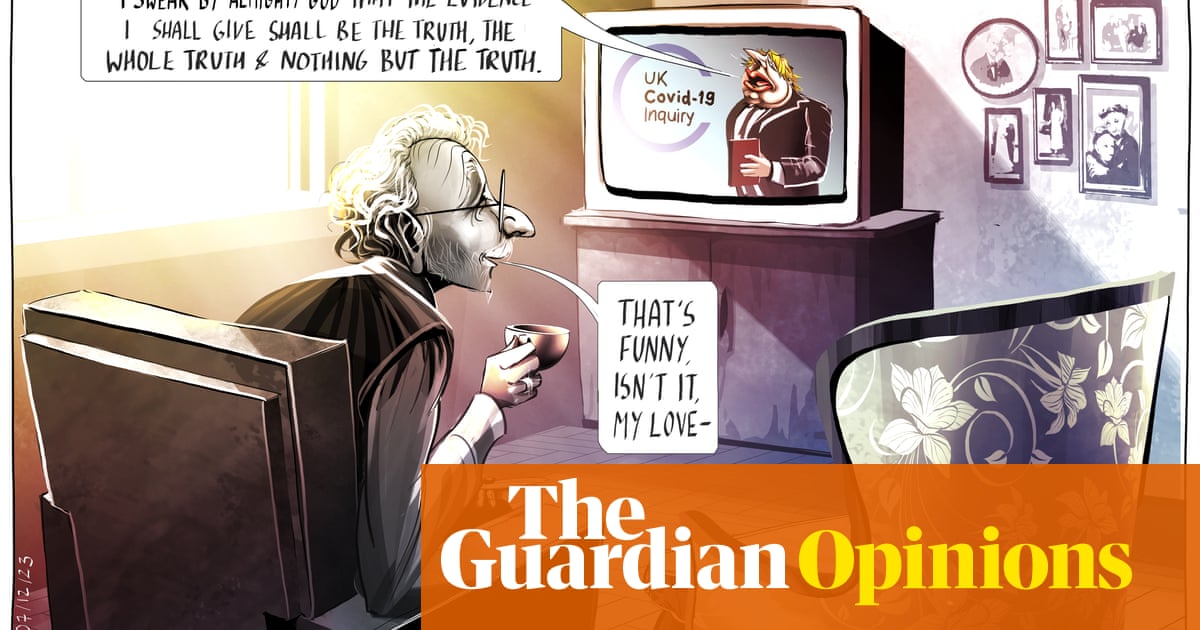
ews that Boris Johnson is to take “direct control” of the government’s handling of the coronavirus crisis raises more questions than it answers. What exactly has the prime minister been doing until now? Were we not also told, when he returned to work in April after his brush with death in St Thomas’ hospital, that he was resuming control then as well? Taking back control seems to be rather harder than it sounds. Maybe he should have grasped that a bit sooner.
Trying to get a grip goes with the job. Prime ministers dream of being able to make an announcement, issue an order and then pull a lever or press a button so that things will happen. It almost never works, which is why prime ministers react by doing what Johnson has just done. They shake up Downing Street. They bring in new people. They form new committees. Then they try again. Sometimes the problem is the prime minister. More often the problem is the state machine. In Johnson’s case it is both, which is a bad combination.
Johnson’s need to reassert his government’s purpose is urgent. He mishandled the pandemic. Dominic Cummings made things worse. The public mood is one of uncertainty. The lockdown has been eased, mainly in England, but the pandemic remains the greater reality. For all the bluster, Johnson seems to understand that Covid-19 is not, after all, his finest hour. His current message, insofar as one can be discerned, is not that he is in charge but almost the very opposite: that we should sort this out for ourselves.
Johnson knows he is on the back foot. He has lost a lot of popularity and authority. He is clearly rattled. His ratings have taken a very bad hit, though that may have eased a little and the change must not be overstated. The Conservative party remains ahead of Labour – hardly surprising so early in a parliament and in the midst of a crisis. But the gap has narrowed and Keir Starmer is now polling better than Johnson. The Labour leader looks and talks like a prime minister. The man in No 10 struggles to do the same. Personally and politically, Johnson has had a bad pandemic. This is not what he thought being prime minister would be like. He wants to get back to being the leader of Brexit Britain.
Faced with this problem, Johnson’s instincts are telling. In essence, they are to declare the pandemic over, to move back to Brexit, and to centralise. Johnson has not quite had the bottle to declare “Mission Accomplished” yet, as George W Bush did over Iraq even while the bombs were still exploding in Baghdad. But, in his own way, that is what he is up to. Covid-19 has not provided him with the Churchillian moment that he imagined. It has proved too big for him. Now he simply wants the country, and British politics, to be rid of it. As a result, the lockdown is being eased while infections and deaths are still more numerous here than elsewhere, and before a comprehensive testing system, the umbilical precondition for easing lockdown, is properly in place.
Johnson’s big gamble is that the public is as bored with the pandemic as he is. It is a safe bet that this will have been tested to the nth degree in the government’s focus groups. But it doesn’t square with what people tell the opinion polls, which is that the lockdown is being lifted too fast. Perhaps Johnson calculates that a government promising better times will always score over one that says stay home. Perhaps he reckons Labour can be pigeonholed as nanny-state worryguts and killjoys. Perhaps it is simply that he is a rule-breaker who thinks regulations are for little people. His anger and aggression against Starmer at question time this week were real enough to suggest he knows it’s all still on a knife edge.
The attempt to fire up the hedonism agenda – turbocharged by the press front pages this week – is a tremendous risk, politically and medically. There are lots of people out there who are longing for summer holidays, busting to get into the pub for a pint and gagging to watch a football match. But most people tell the pollsters that they prefer to play it safe. They have accepted that they won’t be flying off anywhere soon. They will move on only when they trust the facts, and Johnson is palpably neither a facts man nor especially trustworthy. It could all still go horribly wrong.
As he tries to move Covid-19 into the past, Johnson is marginalising parliament and the media. These are places where Labour can appear to be on an equal footing with the Tories. For that reason, they are now going to be relegated. Government briefings will be scaled back. Ministerial appearances on the BBC will become rarer again. And parliament will become a despised afterthought. The ludicrous scenes of MPs queueing up to vote embody Johnson’s – and Cummings’ – contempt for every aspect of parliamentary accountability. Never has it been more obvious that a government regards MPs as nothing more than lobby fodder. The new Speaker, Sir Lindsay Hoyle, is being shown who is boss in no uncertain terms.
The phrase “We are the masters now” was originally associated with Labour hubris after the landslide victory in 1945. Today, the same words are the key to understanding Johnson’s Conservative government strategy. His failures over coronavirus may be irritating. Cummings’ conduct may be embarrassing. But while his effective majority of 87 holds, Johnson can afford to treat everything except Brexit with contempt. He may well get away with it, even to the extent of making a trade deal with the one-man axis of evil in the White House.












